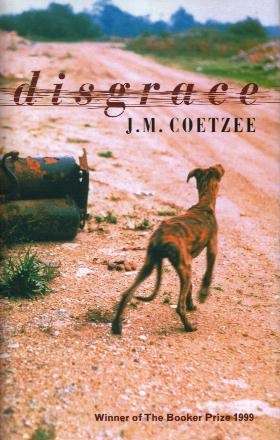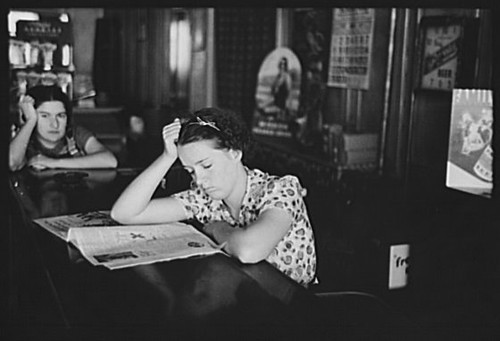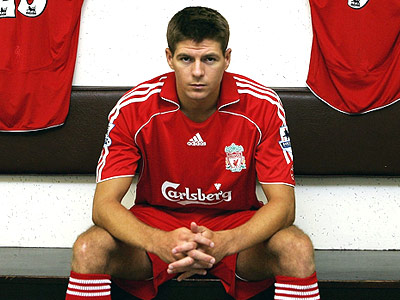Monday – At passport control Thermal Girl had filled in a form to say where she staying during her visit to New Zealand. She didn’t know our address but wrote down our email. The bloke interviewing her couldn’t read her handwriting so she spelt it out for him. ‘Oh, I know them!’ he said. She thought he was joking – as you would – until he gave his name and said for her to say hello to us from him. Welcome to New Zealand, where the cliché about two degrees of separation is actually true.
This was Thermal Girl’s first visit to our beautiful country. It was a fine day; she looked around at the blue sky, white mountains, and green rivers. ‘Wow’ she said. And then she said, ‘wow’ again. It’s always nice to be reminded of what a scenic location we inhabit, just to ward off complacency.
I took her back to our place and fed her wine and crackers. When Him Outdoors came home he made us chilli. She likes our house. She likes the fire most of all, and didn’t move from in front of it all night.
Tuesday – Thermal Girl has packed several layers of thermals. She put them all on for a trip to Queenstown where she went to visitor information places, booked skiing packages, and examined bus timetables.
We met for lunch at Pier 19 and lingered over coffees, switching tables to stay in the sunshine – I thought she was very brave to sit outside; those layers were clearly doing their job.
In the evening we took her to the local PTA Quiz at Fox’s Bar in Arrowtown. Our friend, Heart of the District, made up our foursome and we looked to him to answer any questions relating to rugby or Kiwi sport in general. At one point Thermal Girl asked, ‘Is this the sort of quiz where it’s frowned upon to look up the answers on your i-phone?’ Is there a sort of quiz where it isn’t?
We learned that Lake Baikal is the deepest freshwater lake in the world. Apparently it contains approximately 20% of all the liquid freshwater reserves on earth. A haboob is a sandstorm, P&O – as in cruises – stands for Peninsular and Oriental (not Pacific and Oriental), and in the expression mind your ‘p’s and ‘q’s; the letters stand for pints and quarts. Thermal Girl can’t say that she hasn’t received a dose of culture on her tour down under.
Wednesday – Today’s activity was skiing. A bus took Thermal Girl up the mountain where she sashayed down the slopes and re-fuelled with hot chocolates and toasted sandwiches. She says her eyesight isn’t that great and she struggles to tell the difference between the blue and the black runs – she finds out which is which when she is halfway down, which could be interesting!
She says it is all very efficient and she is very impressed with the lack of children on the slopes and the waiting time in queues. She does, however, wonder why the toilets are down a flight of stairs rather than all on the same level.
We called round to a friend’s place in the evening where we drank wine, talked nonsense and ate pizza. Thermal Girl wanted to know why Kiwi houses don’t have radiators – a good question and one I still can’t answer after living here for 14 years – and why they put bananas on pizzas. I can’t answer that one either.
Thursday – After another full day’s skiing, Thermal Girl came to my book club with me. She finds it curious that we don’t really talk about books, and certainly not the same one as each other. The eating and drinking met with her approval, however. She reviewed One Day by David Nicholls which sounds pretty good, although it is being made into a film ‘starring’ Anne Hathaway (because clearly there are no English actresses available), so that should ruin that, then.
which sounds pretty good, although it is being made into a film ‘starring’ Anne Hathaway (because clearly there are no English actresses available), so that should ruin that, then.
Friday – We had a voucher for a trip to Milford Sound incorporating a nature trip on a boat, so we gave that to Thermal Girl. She said she wanted to do something touristy and sight-seeing-ish so we thought this would be appropriate. She agreed, particularly enjoying the views, the penguins and the dolphins, although she was less enamoured with Te Anau – ‘does anything actually ever happen there?’
On the return trip it was dark outside so the bus passengers were ‘treated’ to a couple of Kiwi classic films. She found Whale Rider ‘interesting in a naff sort of way’. It had subtitles for the hearing impaired and every now and then it would say ‘mystical music’ across the bottom of the screen. Thermal Girl said some of the ‘hideous wailing’ made her wish she were hearing impaired herself.
The World’s Fastest Indian met with a little more approval despite Anthony Hopkins having ‘an extremely odd accent’ – that’s Invercargill for you. She exited the bus before the final destination (I picked her up from Frankton Bus Station) so she missed the end of the film. When she mentioned this later in the pub, she was told succinctly, ‘he gets the record and then he dies.’ That’s also Invercargill for you.
In said pub Thermal Girl apologised profusely but she doesn’t really drink beer. It seems a shame when the Arrow Brewing Company makes such fine ales, but when she couldn’t finish her sauvignon blanc, there were no takers; in our entirely non-scientific experiment, people from Invercargill, Newcastle, Burnley and Essex prefer beer. We went next door to Mantra for a fine Indian meal – it’s just wonderful to have everything so handily placed to each other!
Saturday – Provisions was our first port of call for breakfast and coffee. I’m still not sure what is the best time to avoid the young family brigade; the ones who take over an entire room with their toys and papers – each parent and child monopolizing a different table while shouting to each other across the cafe. I really like the place, but would like it a lot more if it resembled a disorganised crèche a little less.
Thermal Girl had packed away most of her layers and we took her to Brennan for a final wine-tasting. She decided she liked the pinot grigio very much but couldn’t have too much as she was about to get on a plane. Tracey talked us through all the nuances and subtleties of the wine; its origin; flavours and history. She was knowledgeable, chatty and very friendly. We bought a 2008 Gewürztraminer and a 2007 Pinot Noir to take home and put in our riddling rack.
I think we packed in quite a lot to entertain our guest in the past five days and I was very sad to see her off at the airport, but I thoroughly enjoyed her visit and hope she did too.
We called round to a friend’s place in the evening where we drank wine, talked nonsense and ate pizza. Thermal Girl wanted to know why Kiwi houses don’t have radiators – a good question and one I still can’t answer after living here for 14 years – and why they put bananas on pizzas. I can’t answer that one either.
Thursday – After another full day’s skiing, Thermal Girl came to my book club with me. She finds it curious that we don’t really talk about books, and certainly not the same one as each other. The eating and drinking met with her approval, however. She reviewed One Day by David Nicholls
Friday – We had a voucher for a trip to Milford Sound incorporating a nature trip on a boat, so we gave that to Thermal Girl. She said she wanted to do something touristy and sight-seeing-ish so we thought this would be appropriate. She agreed, particularly enjoying the views, the penguins and the dolphins, although she was less enamoured with Te Anau – ‘does anything actually ever happen there?’
On the return trip it was dark outside so the bus passengers were ‘treated’ to a couple of Kiwi classic films. She found Whale Rider ‘interesting in a naff sort of way’. It had subtitles for the hearing impaired and every now and then it would say ‘mystical music’ across the bottom of the screen. Thermal Girl said some of the ‘hideous wailing’ made her wish she were hearing impaired herself.
The World’s Fastest Indian met with a little more approval despite Anthony Hopkins having ‘an extremely odd accent’ – that’s Invercargill for you. She exited the bus before the final destination (I picked her up from Frankton Bus Station) so she missed the end of the film. When she mentioned this later in the pub, she was told succinctly, ‘he gets the record and then he dies.’ That’s also Invercargill for you.
In said pub Thermal Girl apologised profusely but she doesn’t really drink beer. It seems a shame when the Arrow Brewing Company makes such fine ales, but when she couldn’t finish her sauvignon blanc, there were no takers; in our entirely non-scientific experiment, people from Invercargill, Newcastle, Burnley and Essex prefer beer. We went next door to Mantra for a fine Indian meal – it’s just wonderful to have everything so handily placed to each other!
Saturday – Provisions was our first port of call for breakfast and coffee. I’m still not sure what is the best time to avoid the young family brigade; the ones who take over an entire room with their toys and papers – each parent and child monopolizing a different table while shouting to each other across the cafe. I really like the place, but would like it a lot more if it resembled a disorganised crèche a little less.
Thermal Girl had packed away most of her layers and we took her to Brennan for a final wine-tasting. She decided she liked the pinot grigio very much but couldn’t have too much as she was about to get on a plane. Tracey talked us through all the nuances and subtleties of the wine; its origin; flavours and history. She was knowledgeable, chatty and very friendly. We bought a 2008 Gewürztraminer and a 2007 Pinot Noir to take home and put in our riddling rack.
I think we packed in quite a lot to entertain our guest in the past five days and I was very sad to see her off at the airport, but I thoroughly enjoyed her visit and hope she did too.





.jpg)















.jpg)
.jpg)
.jpg)
.jpg)
.jpg)
.jpg)
.jpg)
.jpg)
.jpg)
.jpg)
.jpg)
.jpg)